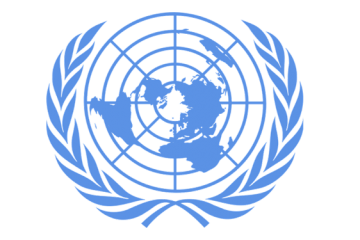Latin American negotiators support LULUCF and REDD+ Argentine, Bolivie, Brésil, Chili, Colombie, Costa Rica, Equateur, Guatemala, Péru
![]() ENVIRONMENT
ENVIRONMENT ![]() FORESTRY
FORESTRY


Services: Technical assistance, Training and capacity building
Countries: Argentine, Bolivie, Brésil, Chili, Colombie, Costa Rica, Equateur, Guatemala, Péru
Dates of intervention: 2010/04 - 2012/02
Amount executed: 18 000 €
Total amount of the service: 18 000 €
Main backer: Coopération française
Main beneficiary: Commission économique pour l’Amérique Latine et les Caraïbes - Client
Co-contractors: Centre agronomique tropical de recherche et enseignement
Support provider: Olivier BOUYER
Experts: Olivier BOUYER
Certificate of satisfactory executionCopenhague-Paris-Oslo-Cancun ? XIV Seminario Regional Latinoamericano Bosques y Cambio Climatico
Context of the service
Since 2001, the group of Latin American climate and forest negotiators has been meeting to prepare for the LULUCF and REDD+ negotiations. Between 2001 and 2010, more than fifteen regional seminars were organized, including: 2001 - Santiago, Chile, 2002: Buenos Aires, Argentina, 2003: Bogotá, Colombia, 2004: Montevideo, Uruguay, 2005: Buenos Aires, Argentina, 2006: Lima, Peru and São Paulo, Brazil, 2007: Turrialba, Costa Rica and Santiago, Chile, 2008: Santiago, Chile, Bogotá, Colombia, 2009: Panama City, Panama, 2010: Lima, Peru and Bogotá in Colombia, 2011: Mexico City, Mexico and Santiago, Chile, 2012: Santiago, Chile. These seminars were facilitated by ONFI and the Tropical Agronomic Center for Research and Education (CATIE) in Costa Rica.
This process has been effective and has resulted in common position papers and submissions to the Climate Convention, including the first on REDD+, which have truly shaped the mechanism: April 2006 (Colombia, Costa Rica, Dominican Republic, Ecuador, Mexico, Nicaragua, Panama and Peru), February 2007 (Costa Rica, Dominican Republic, Guatemala, Honduras, Mexico, Panama, Paraguay and Peru), June 2007 (Honduras, Mexico, Panama, Paraguay and Peru), April 2008 (Argentina, Honduras, Panama, Paraguay and Peru), etc. Many more followed.
Beyond these submissions, the seminars allowed delegates to establish strong links and defend their common interests, despite the heterogeneity of the participating countries.
Services provided
Support for this group was twofold: (i) set up and encourage a highly technical dialogue between seasoned negotiators, so that they can advise their political representatives on the progress of forest/climate negotiations, (ii) train new negotiators on the complex topics of forest/climate negotiations.
This support therefore required the preparation of numerous technical notes to decipher the issues and options of the negotiations, the facilitation of meetings and the search for points of consensus, support for the drafting of position papers and submissions to the Climate Convention. It also and above all required gaining the confidence of the group, as some discussions can be difficult and require the facilitator to be neutral in order to move countries towards each other.
Finally, as former French LULUCF/REDD+ negotiator between 2006 and 2009 and advisor to REDD+ negotiators from Congo Basin countries between 2007 and 2010, the expert also worked for dialogue and rapprochement with LULUCF/REDD+ negotiators from Europe, Central Africa and Latin America.
Between the Copenhagen (end of 2009) and Doha (late 2012) climate conferences, support enabled many Latin American countries to intervene effectively in REDD+ negotiations, but also to prepare as well as possible for its deployment on the ground, by being able to link the issues of negotiations and implementation issues.
Summary of the service
Support of Latin American negotiators on LULUCF and REDD+: Preparation of numerous technical notes to decipher the issues and options of the negotiations; Organization and facilitation of annual meetings; Search for points of consensus; Support for the drafting of position papers and submissions to the Climate Convention.